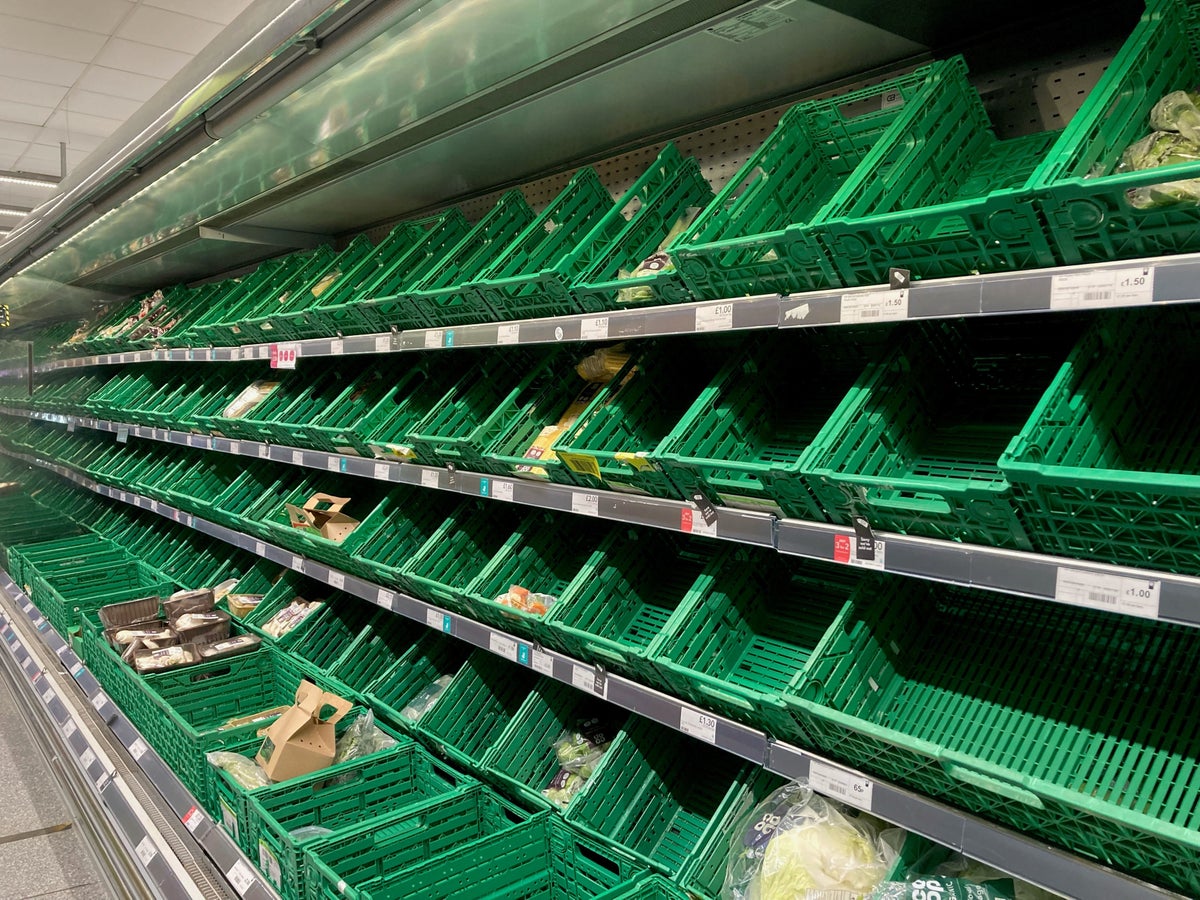
Shoppers have hit out after reports of empty shelves in supermarkets across the country at the weekend.
Morrisons has admitted a tomato shortage and a general lack of fresh vegetables is reported elsewhere.
Andrea Cowan, the SNP councillor for Rutherglen Central & North, posted a photo on Twitter showing a lack of veg at a site in her local area.
“I’m sorry, @tesco this is not good enough in your Dalmarnock store on a Friday afternoon Lots more shelves with empty boxes throughout the store,” she wrote.
“Rising prices are bad enough but lack of basic foodstuffs is unacceptable.”
Morrisons said stock at a store in Cheltenham had been affected by “adverse weather conditions” across Spain and Morocco, where it gets some of its supplies from.
Supermarkets across the UK have been hit with fruit and veg shortages intermittently in recent years.
A combination of factors has been blamed for the shortages, including supply chain issues caused by the Covid pandemic, soaring energy costs fuelled by Russia’s illegal war in Ukraine and a shortage of both permanent and seasonal farm workers due to Brexit.
Lea Valley, which stretches from Hertfordshire and Essex to north London, produced around 75 per cent of Britain’s cucumbers and peppers in 2020.
The area – dubbed the ‘cucumber capital of Britain’ – could see production halved this year compared with 2020 figures.
Lee Stiles, Lea Valley Growers Association secretary, said in November that there would be British produce shortages next year “across the board” due to increasing costs.
A report from Promar International found that growers’ production costs increased by as much as 27 per cent in last year – with tomatoes, broccoli, apples and root vegetables most affected.
Energy was one of the main drivers of increased costs, up 165 per cent, followed by fertiliser, up 40 per cent, and workforce costs, up 13 per cent.
Martin Emmett, of the National Farmer’s Union, said the industry was under the “greatest strain I’ve ever seen”.
“A continued lack of a reliable workforce, both in permanent and seasonal roles, combined with sharply rising input costs, particularly for energy, has put many businesses on a knife edge.
“Producers of high energy crops in particular, such as top fruit, root vegetables and crops grown under glasshouses, have severe doubts about their business viability.”
Minette Batters: BGTA: “British food is under threat... at a time when global volatility is threatening the stability of the world’s food production, food security, and energy security. I fear the country is sleepwalking into further food supply crises with the future of British fruit and vegetable supplies in trouble."
ProfessorPhilip Morley, Horticulturalist and technical officer of the British Tomato Growers Association (BGTA) told the Grocer: "Rising fuel costs has (sic) meant transportation costs are now higher. Other input costs such as seeds, fertiliser, and feed have also increased between 100 and 400%. These are on top of the health checks on seeds entering the UK to rule out plant viruses that can affect crops. Those costs are also passed on to the grower".
Morrisons: “Availability across our tomato range has been significantly impacted by adverse weather conditions across Spain and Morocco. The current shortage is likely to improve within a couple of weeks."







